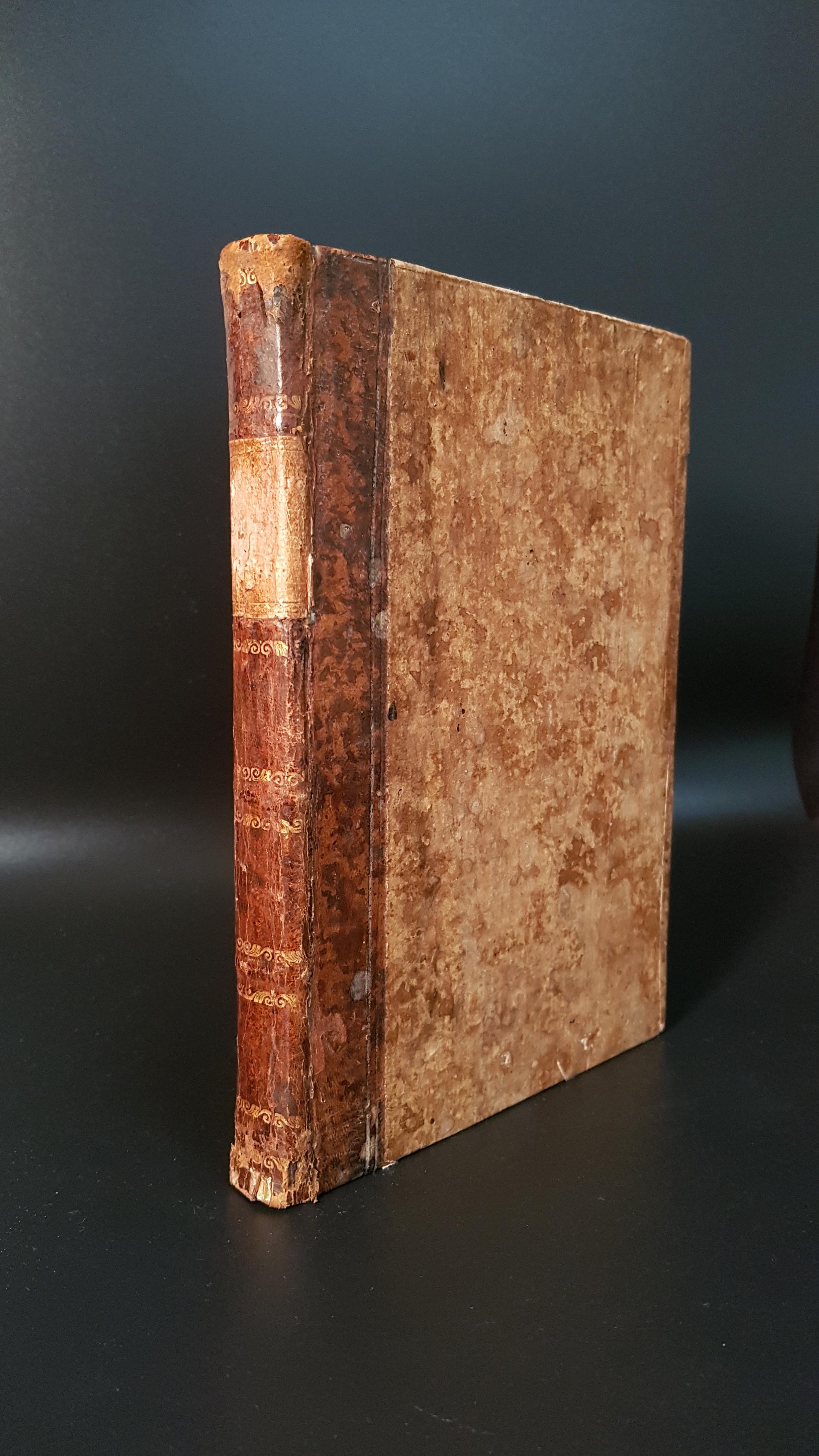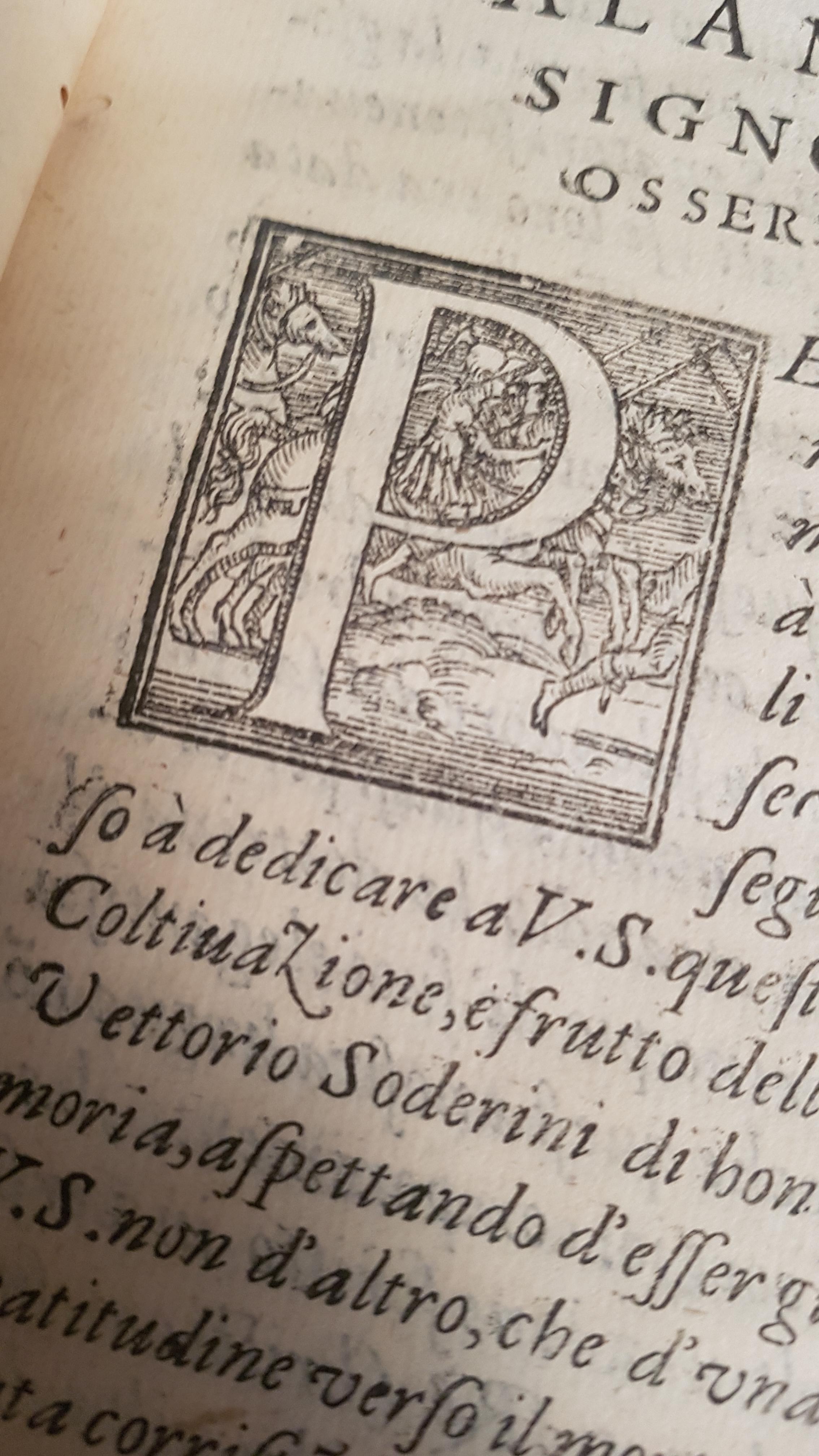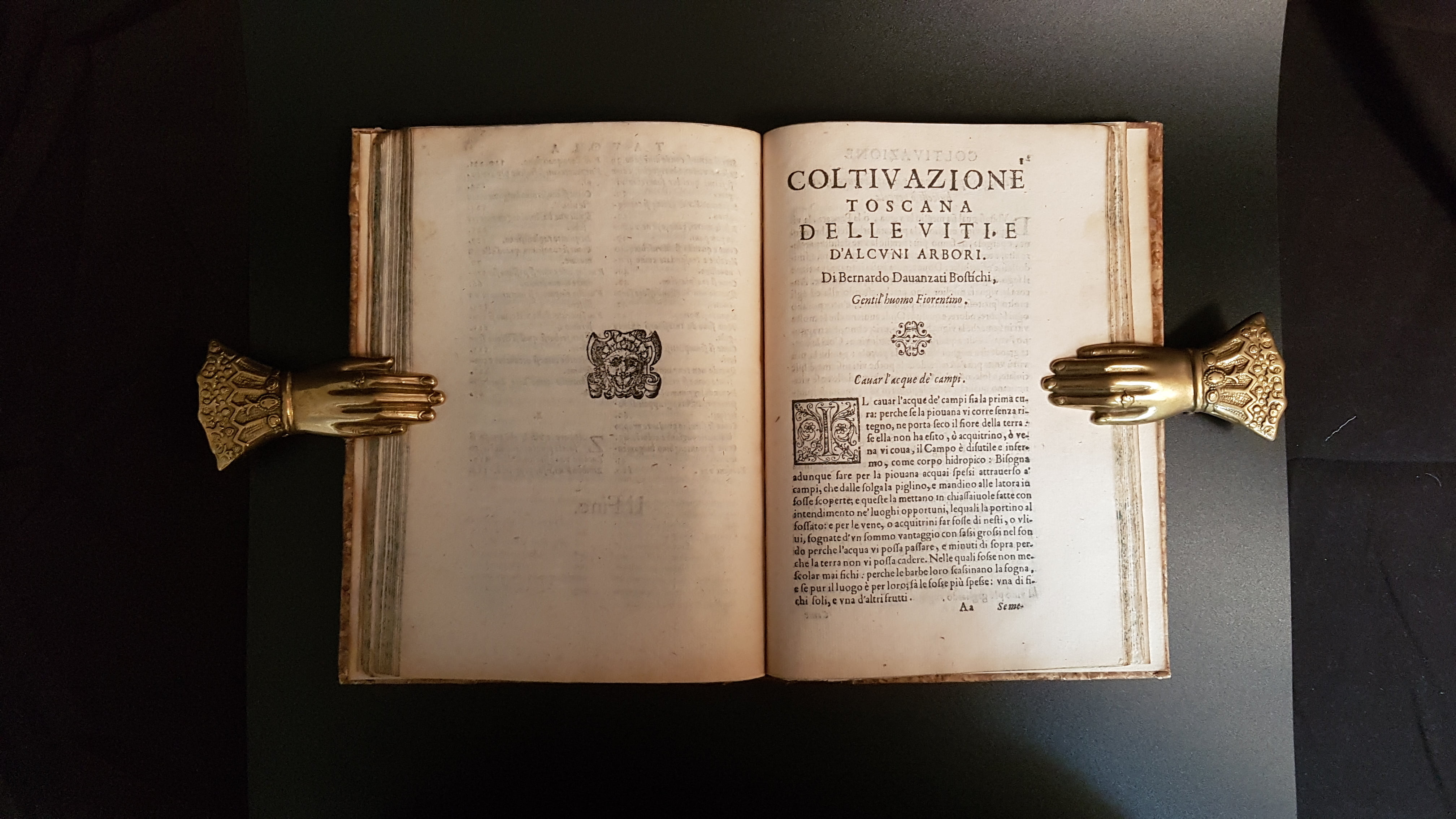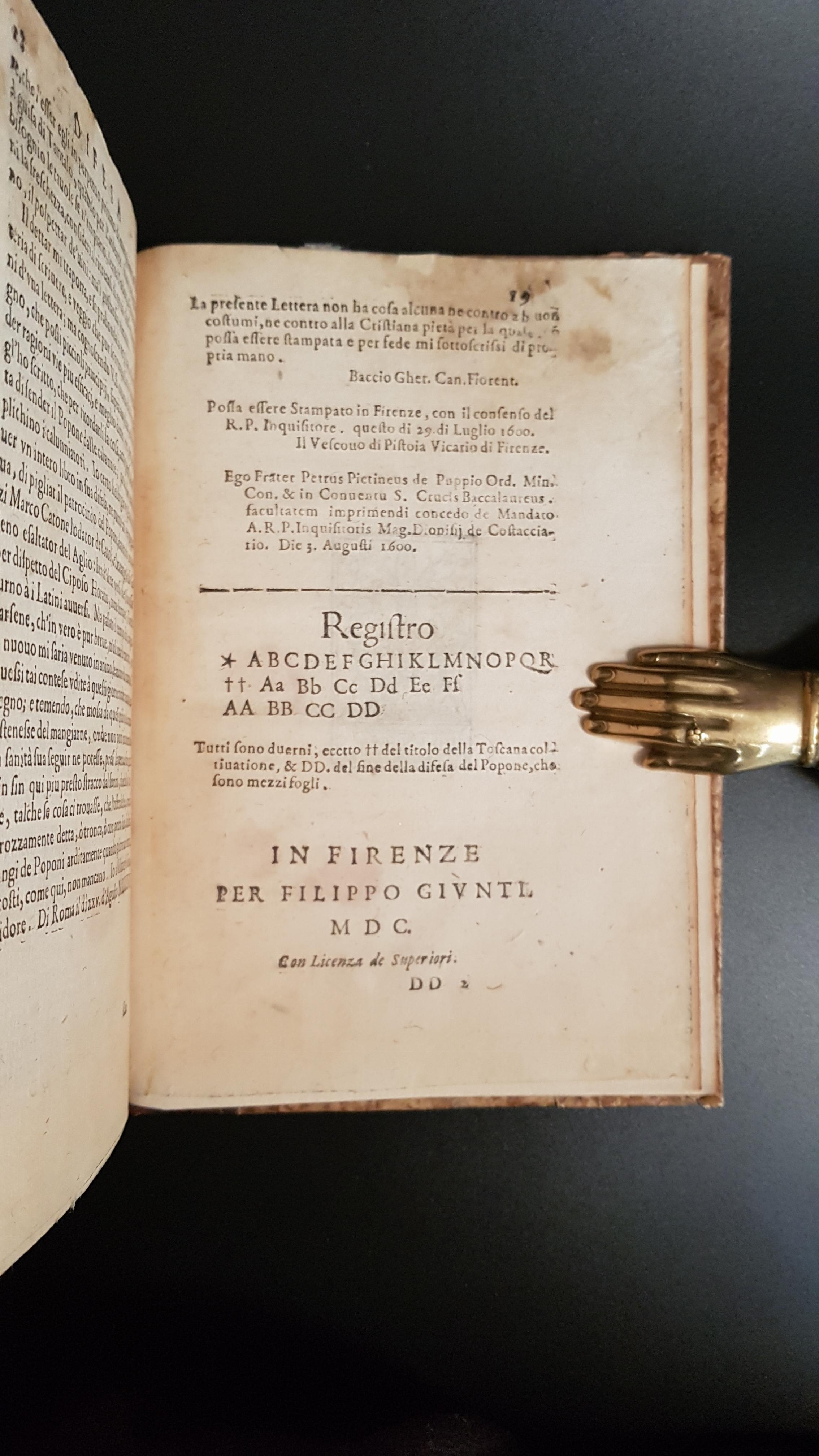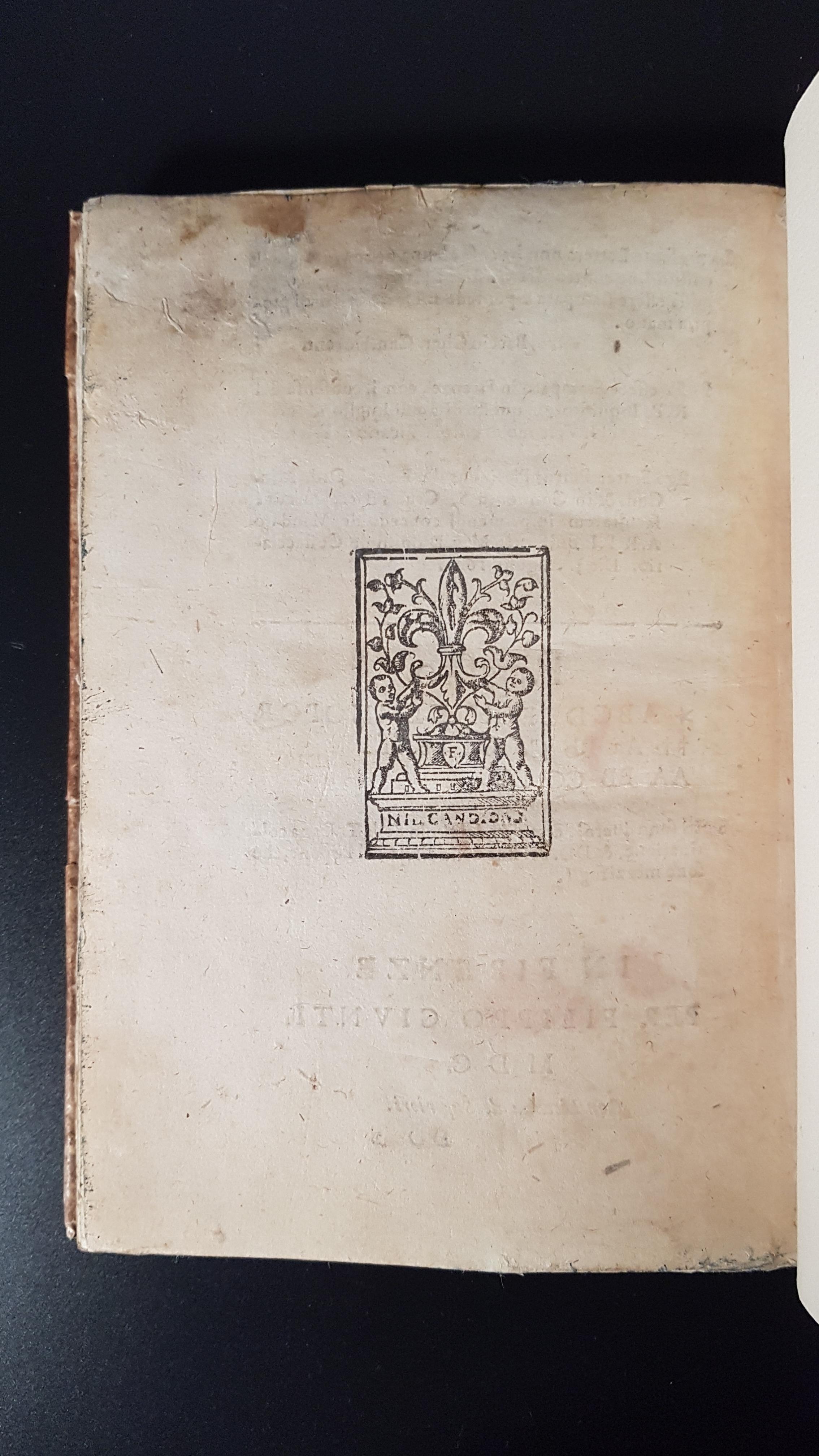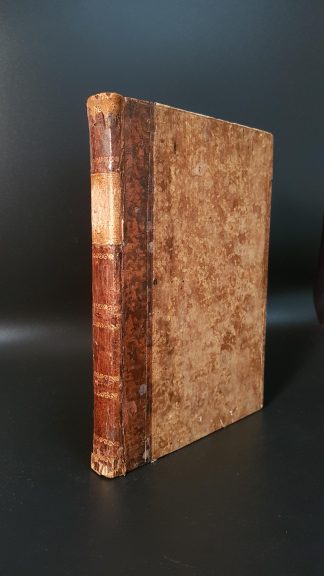SODERINI, Giovanni Vettorio
VITICULTURE AND HORTICULTURE
Trattato della coltivazione delle viti
Firenze, per Filippo II Giunta, 1600£1,950.00
FIRST EDITION. 4to. pp. (x) 128 (viii) 45 (xi) 19 (i). Roman letter, little Italic. Printer’s woodcut device to t-p and last, decorated initials, head- and tailpieces. Title a little dusty with little marginal worming, repaired at gutter to gatherings F-L, occasionally touching letters, light dampstaining to lower inner corner and at gutter of first and last ll., some soiling and minor repair to upper outer corner of last few gatherings. A good copy in C18 quarter mottled sheep over old vellum boards, spine gilt, later eps. Light contemporary annotation.
A good copy of the first edition of this collection of three treatises on horticulture, the most important of which—on vines and wine—by G.V. Soderini (1526-96). He was an Italian agronomist who studied philosophy and law at Bologna; after being spared execution by Ferdinando I de’ Medici for his political opposition, he was exiled to a Tuscan estate. The result of his years of forced ‘otium’, the ‘Trattato’ focuses on viticulture, examining the soil, weather and techniques which can elicit the best production of grapes and wine. The early annotator of this copy was a keen practitioner interested in the growth of vine cuttings (‘magliuoli’), ways of preserving them from worms and tying them to one another, and the best time (‘between the two moons’) to harvest grapes. Soderini also considered the nature and making of wines—e.g., sweet, ‘hot’, watered (‘acquetta alla romanesca’) or dry—and ways of giving them a specific flavour or smell with the addition of herbs. The second, shorter treatise—Bernardo Davanzati Bostichi’s ‘Coltivazione toscana delle viti’—reprises selected topics on viticulture with the addition of material on fruit trees and vegetables, and methods of killing caterpillars and worms. The third—Leonardo Giachini’s ‘In difesa, et lode del popone’ (dated 1527)—is a hilarious mock-celebration of the melon, its flavour and properties (as well as of the ‘de re rustica’ genre) set against the criticism thereof of an improbable physician ‘who wouldn’t even be good enough to castrate pigs’. An intriguing horticultural florilegium with a twist of flamboyant Renaissance satire.
USTC 856956; Simon, 622; Brunet V, 425. Not in BM STC It. C17, Oberlé, Bitting (1622 only) or Thes. Lit. Bot.In stock


